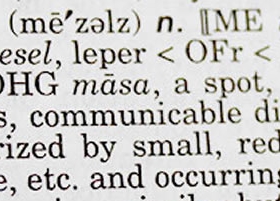Article at a Glance
A recent 12-year study confirmed the overall safety of two measles-containing vaccines and concluded that adverse outcomes are extremely unlikely.
“This level of safety monitoring for vaccines can give the public confidence that vaccine surveillance is ongoing and that if a safety problem existed, it would be detected,” said lead study author Nicola P. Klein, MD, PhD.
These findings are comforting to many parents. The recent measles outbreak has shown how vulnerable our communities are to diseases that have been prevented by vaccines for so many years. Measles is especially contagious, with a 90% infection rate for people who have not been vaccinated. When comparing the risks associated with measles, any risks that may come with vaccination are very miniscule.
Measles Complications
Source: Centers for Disease Control and Prevention
Safety of Measles-Containing Vaccines Study
Conducted at the Kaiser Permanente Vaccine Study Center, the study included children from 12 to 23 months who received the MMRV or MMR + V vaccines from January 2000 through June 2012. The study evaluated 123,200 MMRV doses and 584,987 MMR + V doses.
The study looked at seven main adverse outcomes and found that they were unlikely to occur after the measles-mumps-rubella-varicella (MMRV) or separately administered, same-day measles-mumps-rubella and varicella (MMR + V) vaccines.
Researchers looked for any new safety concerns and for seven main neurological, blood or immune system disorders, including immune thrombocytopenia purpura, anaphylaxis, ataxia, arthritis, meningitis/encephalitis, acute disseminated encephalomyelitis, and Kawasaki disease.
According Dr. Klein, “This study did not identify any new safety concerns comparing MMRV with MMR + V or after either the MMRV or the MMR + V vaccine. In fact, there were few or zero events for several outcomes following vaccination. These findings indicate that even if an increased risk for these outcomes exists, the risk is low and rare. This should reassure parents that these outcomes are unlikely after either vaccine.”
The most common adverse side effect to the vaccines is an increased risk of fever and febrile seizures in one-year-old children seven to ten days after the vaccine has been administered. But the risk was small, with less than one febrile seizure per 1,000 vaccinations. In children ages four to six, previous studies have shown no increased risk of fever or febrile seizure.
Febrile seizures are convulsions that occur during a fever and are fairly common in children from 6 months to five years old, especially if it runs in the family or if the child has had one before. Although children should be examined by a doctor right away, febrile seizures usually don’t require any additional treatment or lead to other health problems.
The study did find that the MMR + V was less likely to cause febrile seizures than the MMRV, so if parents are concerned they can request to have the MMR + V vaccine.
